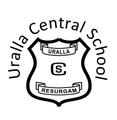Wellbeing

Everything in your life is a reflection of a choice you have made. If you want a different result, make a different choice.
HOW2Learn - The Five Learning Dispositions
Think of the five dispositions as different aspects of the same learner.
‘We can think of the dispositions as being like groups of ‘learning muscles’. Just as we can build our physical muscles by the right kind of exercise, so we can exercise our learning muscles to develop their strength and stamina. Developing the dispositions that make for success as a lifelong learner equates to achieving a good level of all‐round learning fitness’.
Self‐regulation: The emotional aspects of learning recognise that there are certain ways of behaving that help you to stay attached to the learning and that give you the best chance of success. Being able to manage your distractions, tough it out when things don’t go to plan, notice things around you and actively search for
ways to become more absorbed in the learning is what being self‐regulated is all about!
Reflectiveness: The strategic aspects of learning help us to think about what we need, how we should spend our time, what we have learnt and how to use those things to enhance new learning. It is about being
critically self‐aware and open to seeking and giving yourself feedback.
Resourcefulness: The cognitive aspects of learning are about thinking in clever, effective ways. Learners who are resourceful make links with things they already know. They also know how to source information
when they need answers. They think creatively, rigorously and methodically and ask great questions about what they are thinking.
Responsibility: The ethical aspects of learning help us understand that we have a commitment beyond ourselves. These are the outward looking aspects of learning. We have a responsibility to behave in ways that are respectful, informed and open‐minded.
Reciprocity: The social aspects of learning utilise the power of social capital. Learning with and from others, knowing when to call upon others and when to work on something yourself, listening and understanding something from someone else’s point of view and watching closely to how someone does something are all
powerful ways to accelerate our learning.
